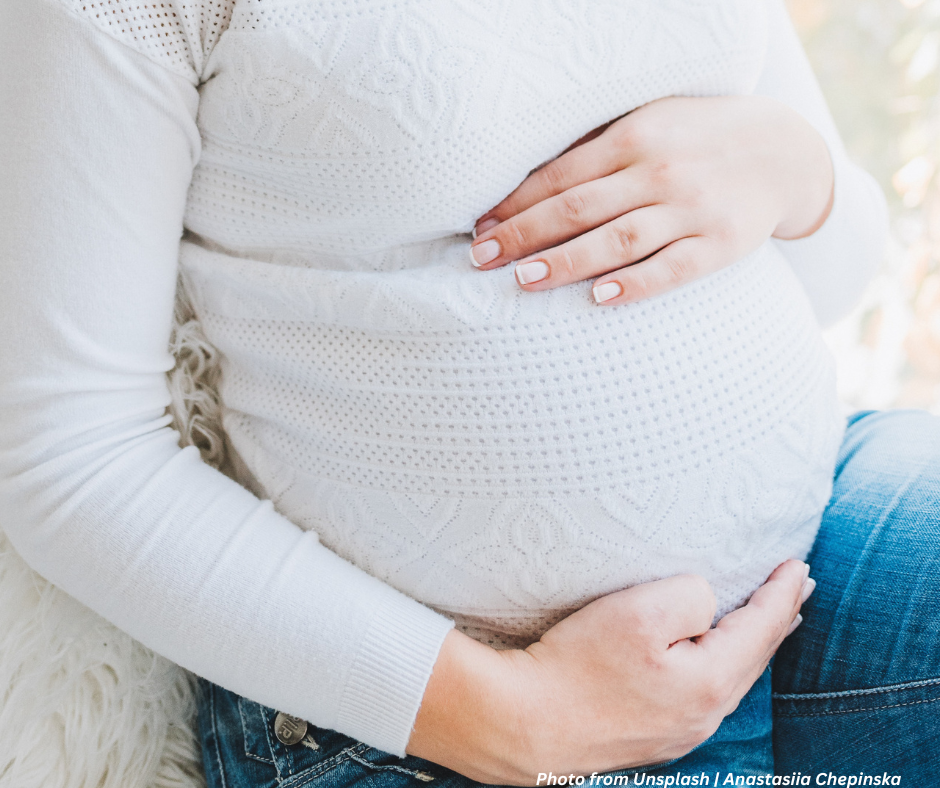
Photo from Unsplash | Anastasiia Chepinska
The following post does not create a lawyer-client relationship between Alburo Alburo and Associates Law Offices (or any of its lawyers) and the reader. It is still best for you to engage the services of a lawyer or you may directly contact and consult Alburo Alburo and Associates Law Offices to address your specific legal concerns, if there is any.
Also, the matters contained in the following were written in accordance with the law, rules, and jurisprudence prevailing at the time of writing and posting, and do not include any future developments on the subject matter under discussion.
AT A GLANCE:
The payment of daily maternity benefits shall be a bar to the recovery of sickness benefits for the same period for which the daily maternity benefits have been received. (Section No. 5, R.A. No. 11210)
Under Republic Act No. 11210, or the 105-Day Expanded Maternity Leave Law, all covered female workers in government and the private sector, including those in the informal economy, regardless of civil status or the legitimacy of her child, shall be granted one hundred five (105) days maternity leave with full pay and an option to extend for an additional thirty (30) days without pay: Provided, That in case the worker qualifies as a solo parent under Republic Act No. 8972, or the “Solo Parents’ Welfare Act”, the worker shall be granted an additional fifteen (15) days maternity leave with full pay.
Enjoyment of maternity leave cannot be deferred but should be availed of either before or after the actual period of delivery in a continuous and uninterrupted manner, not exceeding one hundred five (105) days, as the case may be.
Maternity leave shall be granted to female workers in every instance of pregnancy, miscarriage or emergency termination of pregnancy, regardless of frequency: Provided, that for cases of miscarriage or emergency termination of pregnancy, sixty (60) days maternity leave with full pay shall be granted. (Section No. 3, R.A. No. 11210)
The law says:
“Section 5. Maternity Leave for Female Workers in the Private Sector. — Any pregnant female worker in the private sector shall be granted a maternity leave of one hundred five (105) days with full pay, regardless of whether she gave birth via caesarian section or natural delivery, while maternity leave of sixty (60) days with full pay shall be granted for miscarriage or emergency termination of pregnancy.
(a) A female Social Security System (SSS) member who has paid at least three (3) monthly contributions in the twelve (12)-month period immediately preceding the semester of her childbirth, miscarriage, or emergency termination of pregnancy shall be paid her daily maternity benefit which shall be computed based on her average monthly salary credit for one hundred five (105) days, regardless of whether she gave birth via caesarian section or natural delivery, subject to the following conditions:
(1) That the female worker shall have notified her employer of her pregnancy and the probable date of her childbirth, which notice shall be transmitted to the SSS in accordance with the rules and regulations it may provide;
(2) That the full payment shall be advanced by the employer within thirty (30) days from the filing of the maternity leave application;
(3) That payment of daily maternity benefits shall be a bar to the recovery of sickness benefits provided under Republic Act No. 1161, as amended, for the same period for which daily maternity benefits have been received;
(4) That the SSS shall immediately reimburse the employer of one hundred percent (100%) of the amount of maternity benefits advanced to the female worker by the employer upon receipt of satisfactory and legal proof of such payment; and
(5) That if a female worker should give birth or suffer a miscarriage or emergency termination of pregnancy without the required contributions having been remitted for her by her employer to the SSS, or without the latter having been previously notified by the employer of the time of the pregnancy, the employer shall pay to the SSS damages equivalent to the benefits which said female member would otherwise have been entitled to.
xxx” (Section No. 5, R.A. No. 11210)
Moreover, the Implementing Rules and Regulations of Republic Act No. 11210 provides that the payment of daily SSS maternity benefits shall be a bar to recovery of sickness benefits provided under the Republic Act No. 11199, or the Social Security Act of 2018, for the same period for which daily maternity benefits have been received.
The law says:
“Section 6. Bar to Recovery of Sickness Benefits. – The payment of daily SSS maternity benefits shall be a bar to recovery of sickness benefits provided under the Republic Act No. 11199 for the same period for which daily maternity benefits have been received.” (Section 6, Implementing Rules and Regulations of Republic Act No. 11210)
When does the payment of benefits be considered as a company practice for the purpose of non-diminution of benefits?
Jurisprudence says:
“No definite period is prescribed for when the payment of benefits is deemed a company practice. Indeed, it can be as short as two years, so long as this practice is consistent, deliberate, and customary. Once benefits have ripened into company practice, the employer cannot unilaterally withdraw it, consistent with the policy of non-diminution of benefits.” (Nippon Paint Philippines, Inc. v. Nippon Paint Philippines Employees Association, G.R. No. 229396, June 30, 2021)
Related article: SICKNESS BENEFITS UNDER THE SOCIAL SECURITY LAW
Alburo Alburo and Associates Law Offices specializes in business law and labor law consulting. For inquiries regarding taxation and taxpayer’s remedies, you may reach us at info@alburolaw.com, or dial us at (02)7745-4391/0917-5772207.
All rights reserved.


